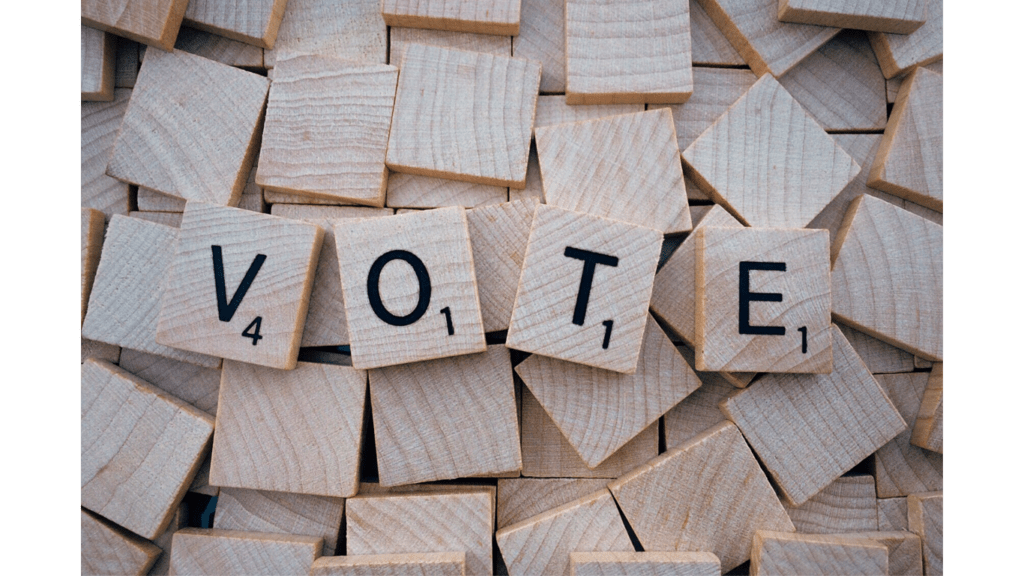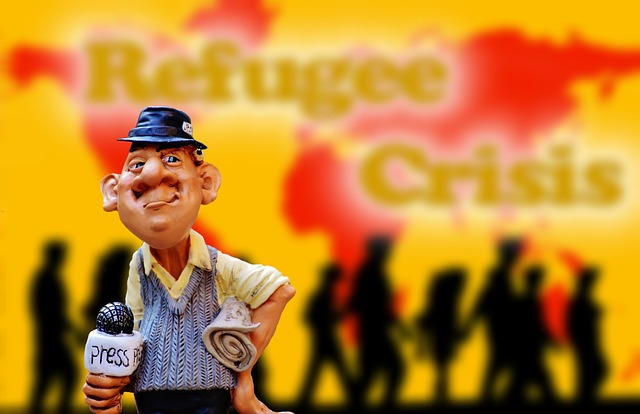Understanding the Concept of Electoral Integrity
The Pillars of a Democratic Election
In democratic systems, the pillars of a successful and fair election lie in transparency, inclusivity, and accountability. Transparency ensures that the electoral process is visible to all stakeholders, from the casting of votes to the tabulation of results. Inclusivity focuses on providing equal access to the voting process for all eligible citizens, without discrimination or barriers. Accountability holds election officials and processes responsible for upholding the rules and regulations that safeguard the integrity of the electoral system. These pillars form the foundation of a democratic election and are essential in maintaining public trust and confidence in the electoral process.
Measuring Electoral Integrity
Measuring electoral integrity involves assessing the adherence to established standards and norms in the electoral process. Indicators such as voter registration accuracy, the independence of electoral management bodies, and the fairness of campaign practices are key components in evaluating electoral integrity. By analyzing these factors, researchers and policymakers can gauge the level of compliance with democratic principles and identify areas for improvement to enhance the overall integrity of elections. Electoral integrity assessments provide valuable insights into the effectiveness of electoral systems and help in addressing challenges that may undermine the credibility of electoral outcomes.
Historical Perspective of Electoral Challenges
1. Notable Instances of Electoral Interference
Electoral interference has been a recurring issue in many democracies worldwide. Instances of foreign actors meddling in elections through disinformation campaigns, cyberattacks, and other covert methods have raised concerns about the integrity of electoral processes. For instance, the alleged Russian interference in the 2016 United States presidential election highlighted how external forces can manipulate public opinion and undermine trust in the electoral system.
2. The Impact on Public Trust
Electoral challenges, such as interference and manipulation, have a detrimental impact on public trust in the democratic process. When voters perceive elections as being compromised or unfair, it erodes their confidence in the legitimacy of election results. This lack of trust can lead to political polarization, disenchantment with the government, and decreased civic engagement. Restoring public trust in electoral integrity is crucial for upholding the principles of democracy and ensuring the stability of democratic institutions.
Contemporary Challenges to Electoral Integrity

Technological Threats and Cybersecurity
- In today’s digital age, one of the significant challenges to electoral integrity stems from technological advancements. Cybersecurity issues pose a substantial threat to the sanctity of elections worldwide. Malicious actors can exploit vulnerabilities in electoral systems to tamper with voter databases, manipulate election results, or spread misinformation to influence public opinion. As technology continues to evolve, ensuring robust cybersecurity measures is imperative to protect the integrity of electoral processes and uphold democratic values.
The Role of Disinformation and Fake News
- The proliferation of disinformation and fake news presents another critical challenge to electoral integrity globally. False information spread through social media platforms and online channels can mislead voters, create polarisation, and undermine trust in the electoral system. By strategically disseminating misinformation, individuals or groups can sway public perception, distort electoral outcomes, and erode the foundation of democracy. Combating disinformation requires a multifaceted approach that involves media literacy, fact-checking initiatives, and transparent communication to safeguard the integrity of elections.
Voter Suppression and Gerrymandering
- Voter suppression and gerrymandering practices pose significant threats to electoral integrity in many democratic societies. By systematically disenfranchising certain groups of voters or manipulating electoral district boundaries, political entities can distort the representation of citizens’ interests and undermine the fairness of elections. Voter suppression tactics such as restrictive voter ID laws, purging voter rolls, or limiting polling locations can diminish electoral participation and disenfranchise marginalized communities. Addressing these challenges requires legislative reforms, equitable redistricting processes, and proactive measures to ensure universal access to the electoral franchise.
Financing and Political Influence
- The influence of financial resources and vested interests in electoral processes presents a persistent challenge to the integrity of elections worldwide. Wealthy individuals, corporations, or special interest groups can wield significant influence through campaign donations, political contributions, or lobbying efforts, potentially skewing policy decisions and electoral outcomes in their favor. The influx of money into politics can undermine the democratic principle of equal representation and create imbalances in political power. Enhancing transparency in campaign financing, implementing stricter regulations on political donations, and promoting accountability in political spending are crucial steps to mitigate the detrimental effects of financial influence on electoral integrity.
Regional Focus: Electoral Integrity Around the World
- Continuing the discussion on electoral integrity, I’ll now delve into specific regional perspectives on the challenges faced in maintaining transparent and inclusive electoral processes worldwide. Let’s explore case studies from developed democracies, emerging democracies, and authoritarian regimes to gain a comprehensive understanding of the diverse issues at play.
Case Studies from Developed Democracies
- In established democracies, maintaining electoral integrity faces unique challenges despite a strong institutional framework. Instances of foreign interference through cyberattacks and disinformation campaigns have raised concerns about the sanctity of elections. For example, the alleged Russian interference in the 2016 US presidential election underscores the vulnerability of even robust democratic systems to external manipulation. Such incidents erode public trust, highlighting the importance of continuous vigilance and adaptive measures to safeguard electoral processes.
Emerging Democracies and Electoral Integrity
- Emerging democracies encounter a myriad of obstacles in ensuring electoral integrity, often stemming from institutional fragility, weak governance structures, and limited resources. Issues such as voter intimidation, electoral violence, and irregularities in voter registration pose significant hurdles to conducting free and fair elections. Addressing these challenges necessitates building robust electoral institutions, enhancing transparency, and fostering a culture of political tolerance and respect for democratic norms. Strengthening electoral integrity in emerging democracies is crucial for reinforcing democratic values and fostering political stability.
Authoritarian Regimes and Sham Elections
- Authoritarian regimes often manipulate electoral processes to maintain a façade of democracy while consolidating power. Sham elections, characterized by voter coercion, restrictions on opposition candidates, and biased electoral commissions, serve as a tool for legitimizing autocratic rule. These regimes utilize electoral theatrics to create a semblance of popular support and international legitimacy, masking the lack of genuine political pluralism and accountability. Recognizing and exposing such sham elections is essential in challenging authoritarian rule and advocating for genuine democratic governance worldwide.
International Efforts to Safeguard Elections

The Role of Observer Missions
- In safeguarding elections globally, observer missions play a vital role in promoting transparency and accountability. These missions, consisting of international monitors and experts, are deployed to assess the fairness and integrity of electoral processes. They observe pre-election preparations, polling activities, and post-election procedures to identify any irregularities or violations. By providing impartial assessments and recommendations, observer missions help ensure that elections meet international standards and uphold democratic principles.
- These missions operate under the framework of organizations such as the United Nations, the Organization for Security and Co-operation in Europe (OSCE), and the European Union. They work closely with local election authorities, civil society organizations, and political stakeholders to monitor key aspects of the electoral cycle. Through their presence and reports, observer missions contribute to building public trust in the electoral process and deterring misconduct.
Legal and Policy Frameworks
- Establishing robust legal and policy frameworks is essential for safeguarding elections against manipulation and fraud. Countries worldwide adopt electoral laws and regulations that define electoral procedures, ensure the rights of voters and candidates, and establish mechanisms for resolving disputes. These frameworks set the groundwork for conducting free, fair, and transparent elections.
- Additionally, implementing policies that promote electoral integrity, such as campaign finance regulations, anti-corruption measures, and voter education initiatives, are crucial in upholding the credibility of electoral processes. By enacting laws that prevent electoral malpractices and enhance accountability, governments can strengthen the integrity of their electoral systems and protect them from external interference.
- International bodies like the International Institute for Democracy and Electoral Assistance (International IDEA) provide guidance and support to countries in developing and implementing effective legal and policy frameworks. By offering expertise, technical assistance, and best practices, these organizations help nations enhance their electoral governance and safeguard the democratic principles underpinning free and fair elections.
Strategies to Enhance Electoral Integrity
1. Education and Voter Awareness Campaigns
To bolster electoral integrity, educating the electorate and raising voter awareness are vital components. Providing clear information about voting processes, rights, and responsibilities can empower citizens to participate knowledgeably in elections. Robust voter education initiatives can help mitigate the spread of misinformation and ensure voters make informed choices. By focusing on educating the public, we can cultivate a more vigilant and engaged electorate that values the democratic process.
2. Strengthening Institutional Checks and Balances
Enhancing electoral integrity requires robust institutional checks and balances to safeguard against potential abuses of power. Strengthening independent electoral bodies, such as election commissions, and ensuring their autonomy from political interference is crucial. By promoting transparency in electoral procedures, enforcing strict regulations on campaign financing, and conducting impartial audits, institutions can uphold the credibility of the electoral process. Upholding the rule of law and reinforcing the separation of powers play a pivotal role in maintaining the integrity of elections.
3. The Importance of Free Press and Civil Society
A free press and vibrant civil society are essential pillars in upholding electoral integrity. Media plays a pivotal role in promoting transparency and accountability by scrutinizing electoral processes and holding authorities accountable. Protecting press freedom, ensuring journalists can operate without fear of reprisal, and combating misinformation are crucial steps in safeguarding the integrity of elections. Additionally, civil society organizations play a critical role in monitoring elections, advocating for electoral reforms, and amplifying the voices of marginalized communities. By fostering a robust environment for media freedom and civil society engagement, we can fortify the foundations of democracy and uphold electoral integrity worldwide.



 Paulina Evansonic is a visionary journalist and media entrepreneur who founded Whisper Wagon Wire, a leading platform renowned for its exclusive insights into top stories, world news, science, technology, and home trends. With a passion for uncovering the truth and a keen eye for detail, Paulina has dedicated her career to providing readers with in-depth, accurate, and engaging content.
Paulina's journey in the media industry began with a strong academic background in journalism and communication. Her early career was marked by her work as a reporter and editor for various prestigious publications, where she honed her skills and developed a reputation for her investigative prowess and commitment to quality reporting.
Driven by a desire to create a more holistic and accessible news source, Paulina launched Whisper Wagon Wire. Under her leadership, the platform has grown to become a trusted name in journalism, known for its balanced reporting and insightful analysis. Paulina's innovative approach has not only elevated the standards of news media but also inspired a new generation of journalists to pursue excellence in their work.
Through Whisper Wagon Wire, Paulina continues to influence the media landscape, ensuring that readers stay informed about the most important developments around the world. Her dedication to truth and transparency remains at the core of her mission, making her a respected and influential figure in the field of journalism.
Paulina Evansonic is a visionary journalist and media entrepreneur who founded Whisper Wagon Wire, a leading platform renowned for its exclusive insights into top stories, world news, science, technology, and home trends. With a passion for uncovering the truth and a keen eye for detail, Paulina has dedicated her career to providing readers with in-depth, accurate, and engaging content.
Paulina's journey in the media industry began with a strong academic background in journalism and communication. Her early career was marked by her work as a reporter and editor for various prestigious publications, where she honed her skills and developed a reputation for her investigative prowess and commitment to quality reporting.
Driven by a desire to create a more holistic and accessible news source, Paulina launched Whisper Wagon Wire. Under her leadership, the platform has grown to become a trusted name in journalism, known for its balanced reporting and insightful analysis. Paulina's innovative approach has not only elevated the standards of news media but also inspired a new generation of journalists to pursue excellence in their work.
Through Whisper Wagon Wire, Paulina continues to influence the media landscape, ensuring that readers stay informed about the most important developments around the world. Her dedication to truth and transparency remains at the core of her mission, making her a respected and influential figure in the field of journalism.
